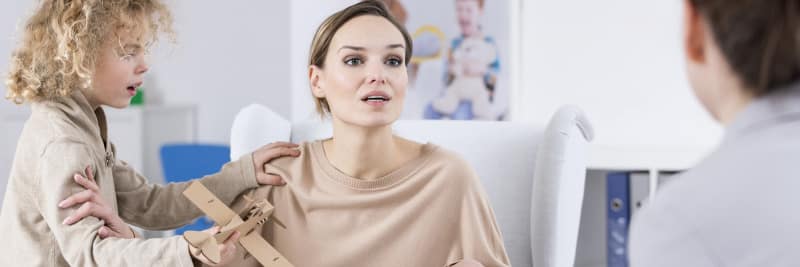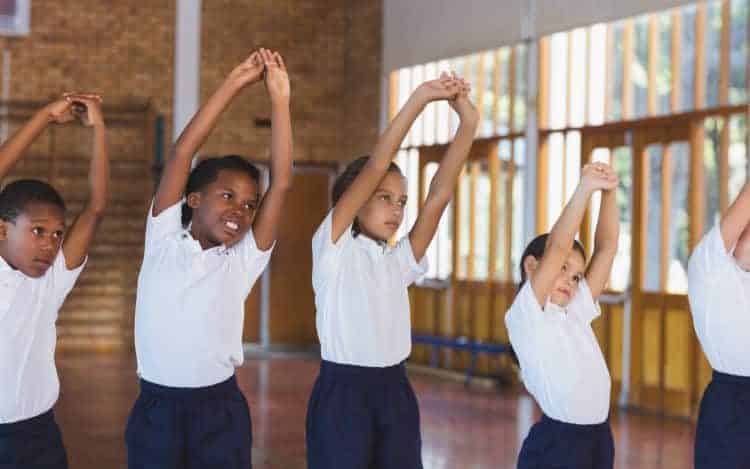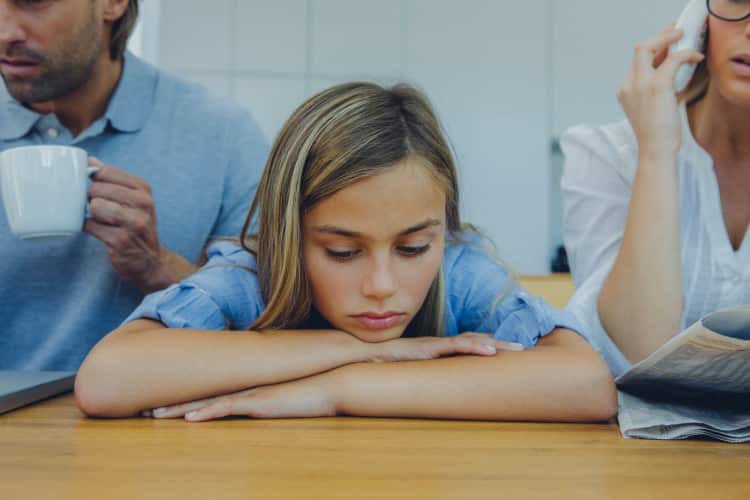“Can ADHD be cured?” It’s a common question that parents of children with Attention Deficit Hyperactivity Disorder (ADHD) ask, and unfortunately, there isn’t a straightforward answer. While some children do seem to “outgrow” their ADHD symptoms as they get older, it’s definitely not the case for everyone. In fact, many adults struggle with ADHD on a daily basis.
There are a few factors that can play into whether or not kids will outgrow their ADHD symptoms. One is the severity of their symptoms. If a child has milder symptoms, they’re more likely to be able to manage them as they get older and develop coping mechanisms. On the other hand, kids with more severe ADHD may find that their symptoms continue to interfere with their lives into adulthood.
ADHD symptoms can also change over time. For example, hyperactivity often decreases as kids get older, but problems with impulsivity and inattention may persist. This can make it difficult to tell if a child has outgrown their ADHD or if they’re just coping better with their symptoms.
There are some things that adults with ADHD can do to help themselves, though. Creating healthy habits and developing organizational skills can go a long way in managing the symptoms of ADHD. And while there’s no cure for ADHD, treatment can certainly help many people manage their symptoms and lead happy, successful lives.
Percentage of ADHD in Children vs Adults

According to research, nearly 6.1% of kids in the United States have ADHD (Healthline, 2022). It is one of the neurobehavioral conditions that impact our brain from regulating important functioning skills.
While many children can be restless, diverted, impulsive, and impervious, children with ADHD have these traits to a much greater degree. As these traits tend to evolve with age, most parents start believing that their children will in due course “outgrow” the disorder itself.
Although one-third of kids outgrow their ADHD symptoms with the development of healthy habits and coping skills, about two-thirds of children continue to experience symptoms. In the United States, ADHD impacts around 4.4 percent of adults (Healthline, 2022).
Though the above statistics suggest that the ADHD traits may decline in some children, there’s no way to know if your kid will eventually outgrow ADHD.
How do Kids Develop Coping Strategies?
There are a few different ways that kids can develop coping mechanisms for their Attention Deficit Hyperactivity Disorder.
One is through medication. Stimulant medications like Ritalin and Adderall can help to improve focus and attention span in people with ADHD. However, not all kids respond well to medication, and some may prefer not to take it for various reasons.
Other coping mechanisms include things like Occupational Therapy, support groups, and lifestyle changes. Many kids with ADHD also find that they do better when they stick to a routine and have a set daily schedule. This can help to give them a sense of structure and organization that they might otherwise lack.
So, let’s learn about the treatments and some of the coping mechanisms in detail.
Medications

Though many parents are afraid of introducing medical treatments to their children with ADHD, medications related to such conditions are well-researched and are prescribed by most doctors across the globe.
Stimulant medications like Concerta, Adderall, and Ritalin are the most commonly prescribed medications for attention deficit disorder. These stimulants revive the areas of the brain that are understimulated. ADHD medication might help children and young adults with ADHD to improve their attention and thought processes. With proper prescription, these medications can minimize your child’s impulsivity and hyperactivity.
Occupational Therapy
Occupational therapy is an excellent method to help kids with ADHD. It can also be used as a standalone treatment or in combination with medications. This type of therapy can help your child to develop healthy coping mechanisms and social skills.
A therapist can work with you and your kid to come up with specific goals that you want your child to achieve and teach them strategies. They can also teach you how to better manage your child’s behavior.
Support Groups
There are many support groups available for parents of kids with ADHD. These groups can provide you with information and resources that can help you to better understand and manage your child’s condition. They can also be a great place to meet other parents who are dealing with similar issues.
Lifestyle Changes
There are a few lifestyle changes that you can make to help your child cope with their ADHD. One is to ensure that they are getting enough sleep.
Kids with ADHD often have trouble sleeping, so it’s important to make sure that they are getting enough rest. You should also make sure that they are eating a healthy diet and getting regular exercise. These things can help to build focus and attention span.
There are some kids with ADHD who eventually outgrow the condition. However, there is no way to know if your child will be one of them. The best thing you can do is to provide them with support and resources that can help them to manage their symptoms. With the right coping mechanisms in place, your child can lead a normal and happy life.
ADHD Symptoms Change with Age
As kids with ADHD get older, their symptoms tend to often change. For example, hyperactivity often decreases as they age, while problems with impulsivity and inattention tend to persist. This can make it more difficult for adults with ADHD to function in the workplace or in social situations. However, there are treatments and coping mechanisms that can help to improve symptoms.
Young adults and grown-ups with ADHD often struggle with organization and time management. This can make it difficult to keep up with work deadlines or to remember important appointments.
However, there are some things that young adults can do to help manage their symptoms. One is to create a daily schedule and stick to it as much as possible. They should also try to break down tasks into smaller, more manageable pieces. And, they must be sure to allow themselves extra time to complete tasks.
Another thing that can help is to establish routines for things like bill-paying and housework. Having a set time each week for these activities can help an adult with ADHD stay on track and avoid forgetting about them altogether.
Finally, it’s important for adults with ADHD to find healthy ways to cope with stress. The stress and anxiety associated with adult ADHD can be managed by exercise, relaxation techniques, or talking to a therapist.
While there is no cure for ADHD, there are treatments that can help kids and adults manage their symptoms. The earlier a person learns skills and strategies, the better it is for them.
If you’re struggling with a child with ADHD, gain a deeper understanding with our recommended list of 14 must-read ADHD books for parents.
How Adults Can Manage Their ADHD

There are a few things that can be done to manage adult ADHD. One is to develop healthy habits and organizational skills. This can help to improve focus and attention span. Adults should also make sure that they are getting enough sleep and exercise. They should also avoid drinking alcohol or using drugs, as these substances can worsen ADHD symptoms.
If you’re an adult with ADHD, you might find it helpful to see a therapist. A therapist can help you to identify and cope with the challenges that you’re facing. They can also provide you with tools and resources that can help you to manage your symptoms.
ADHD can be a challenge, but there are ways to manage it. With the right support in place, kids and adults can manage ADHD. Here, we have enlisted a few coping mechanisms for hyperactive, impulsive, and inattentive symptoms of adult ADHD.
Exercise Daily

Exercise helps adults to improve their attention span. When done every day, it reduces excess energy and helps to fight the symptoms of stress, anxiety, and many disruptive behaviors. Include regular exercise into your daily routine.
Accept Your Limitations
ADHD diagnosis plays an important role in developing coping skills. It helps you to recognize your limitations and understand why you act in a certain way. To cope with your condition, accept your limitations and work on them accordingly. Remember, ADHD is not a mental disorder, rather it’s a neurodevelopmental disorder. You may consult doctors and take help from support groups to improve your symptoms.
Create a Prioritization System
Creating a system for prioritizing your everyday events may help people with ADHD accomplish their daily activities smoothly. Look over things that need to be accomplished first. Leave less important activities for later. This will help you to deal with your inattentive symptoms and stay focused.
Use Your Internal Clock
If you are productive early in the day, try to accomplish the most important items in the morning. However, if you are a person who feels active in the afternoons, arrange your day accordingly. Look for jobs that allow you to be flexible with your internal clock schedule. This will help you to put your best at work and become more productive.
Create Deadlines for Projects
If you struggle to complete a task on time, consider outlining the project and set deadlines. No matter if you are working for your office or house, give yourself a deadline to complete tasks.
Adults with ADHD often get overwhelmed with big tasks. This may leave the task unfinished. Research shows that breaking large projects into small steps might help people with ADHD meet their deadlines.
Find People Who Accept You
The people you spend your time with can influence how you think and feel about yourself. It’s important to find friends or family members who accept you as you are. These people can provide support and understanding. They can also offer helpful suggestions for managing your symptoms.
Support groups can also be beneficial. These groups provide an opportunity to meet other adults with ADHD. You can share your experiences and learn from others who are facing similar challenges.
Learn about ADHD
To cope with your surroundings better, it’s important for you to learn about your ADHD diagnosis. This will help you to be more prepared to handle your regular difficulties. Read reports or books, talk to a doctor or join support groups to deal with your difficulties more successfully.
Conclusion
As you can see, there are many ways that kids and adults can develop coping mechanisms for their attention deficit hyperactivity disorder. If you are a parent or someone struggling with ADHD medications, behavioral therapy, support groups, and lifestyle changes can all be helpful in managing symptoms. If you are a teacher of someone with adhd, we recommend you read our ADHD in the classroom article
ADHD can be outgrown if the person takes the necessary steps and develop healthy habits. However, not all children develop good habits that can classify themselves as ‘not having ADHD’ according to diagnostic criteria.
A combination of behavior therapy, medication, and lifestyle changes can help people with ADHD to cope with their symptoms successfully. However, there is no known cure for this condition.
With the right support in place, people with ADHD can lead happy and successful lives. If you’re concerned about your child’s ADHD, talk to their doctor about the best treatment options. You may also take help from experienced Occupational therapists for other coping mechanisms as well.
Resources:
Can Children Outgrow ADHD?: Valencia Pediatrics: Pediatrics. (2022). Retrieved 7 April 2022, from https://www.valenciapediatrics.com/blog/can-children-outgrow-adhd
Can You Outgrow ADHD? Myths, Treatment & More. (2022). Retrieved 7 April 2022, from https://www.healthline.com/health/adhd/can-you-outgrow-adhd#treatment
5 things parents and teachers need to know about ADHD – Harvard Health. (2022). Retrieved 7 April 2022, from https://www.health.harvard.edu/blog/5-things-parents-and-teachers-need-to-know-about-adhd-2017102712643
Science Daily. (2022). Retrieved 7 April 2022, from https://www.sciencedaily.com/releases/2021/08/210813100258.htm
Grow Out of ADHD? Not Likely – CHADD. (2022). Retrieved 7 April 2022, from https://chadd.org
NPR Cookie Consent and Choices. (2022). Retrieved 7 April 2022, from https://www.npr.org/templates/story/story.php?storyId=16258238
Parents Guide to ADHD in Children. (2022). Retrieved 7 April 2022, from https://childmind.org/guide/parents-guide-to-adhd/
10 Coping Mechanisms for Thriving With Adult ADHD. (2022). Retrieved 7 April 2022, from https://www.healthcentral.com/article/10-coping-mechanisms-for-thriving-with-adult-adhd





